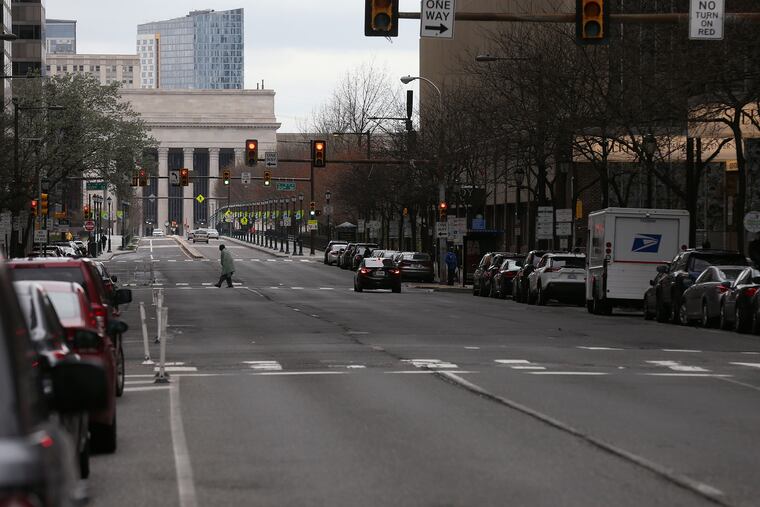A banker’s view of the plan to rescue small businesses: ‘They shot first, and now they are aiming’
Bank CEOs met with officials to review the $350 billion Paycheck Protection Program and came away warning this won't be smooth for small businesses.

It’s been frustrating: As details of the $349 billion “forgivable” loan program for small businesses have spread among U.S. employers wracked by coronavirus shutdowns, 200 bank CEOs and loan officers held a conference call Wednesday night with the officials overseeing the program.
Their goal was to nail down how to apply and when the money would start flowing.
It’s not going to be pretty, according to folks who were on the call. And there won’t likely be enough to serve everybody.
“Our clients are confused and upset,” Havertown accountant Steven L. Granoff said. His client, a New Jersey business owner, spent five hours filling out Paycheck Protection Program forms on the Small Business Administration (SBA) website Wednesday afternoon, only to get “kicked out of the system” with nothing to show for his effort.
“With any program of this magnitude, it takes time to iron out the details,” said Rodger Levenson, chief executive of WSFS Financial Corp., an SBA lender, who has been on a string of other calls with SBA trying to learn more. “There is strong interest in the program.”
» HELP US REPORT: Are you a health-care worker, medical provider, government worker, patient, frontline worker, or other expert? We want to hear from you.
Another Philadelphia-area bank president, who asked that his name not be used, wrote a pungent summary of the Wednesday night meeting, which has circulated among borrowers and advisers seeking cash to tide them over until America reopens.
“Everyone on the call did not feel confident that the SBA will have the ability to take on the flood of applications which would happen on the 3rd,” when the federal agencies had hoped that mid-sized employers with up to 500 workers would begin applying, the banker wrote.
“Imagine if 1,000 banks all submitted 300 applications to the same website at the same time,” he added, suggesting the system would likely crash.
Still unresolved as of Wednesday night: Whether applications should be sent on paper or electronically, and whether a bank can give its regular customers precedence over others whose appeals it collects.
“They shot first, and now they are aiming,” the banker wrote. “Sorry, but ... there is a limited amount of money for this program.”
Even if just 10% of the nearly six million businesses with up to 500 employees apply Friday, for loans at a maximum $10 million each, “if there is only $349 billion to go around ... that will QUICKLY disappear,” he noted.
» READ MORE: Coronavirus cash: Here’s what small businesses need to know about money from CARES stimulus
After being on the call, the writer urged would-be borrowers to call their banker — even the place where they have a checking account if they don’t borrow or buy other bank services — to try to get “ahead of the curve.” Banks with account histories and client financial records should be able to provide the SBA with needed records faster.
And “some people will miss out,” he added. Independent contractors and self-employed people, who have been encouraged to wait until next week to apply, “may not see any of this money” and could “slip through the cracks entirely.”
He noted that, according to Congress, “the point of this program is to get people off of unemployment.” Workers first.
Bottom line: Get your financial paperwork in order, and be ready for when the applications start getting through. “If you are prepared and ready to go, then you will be light years ahead of the general public.”